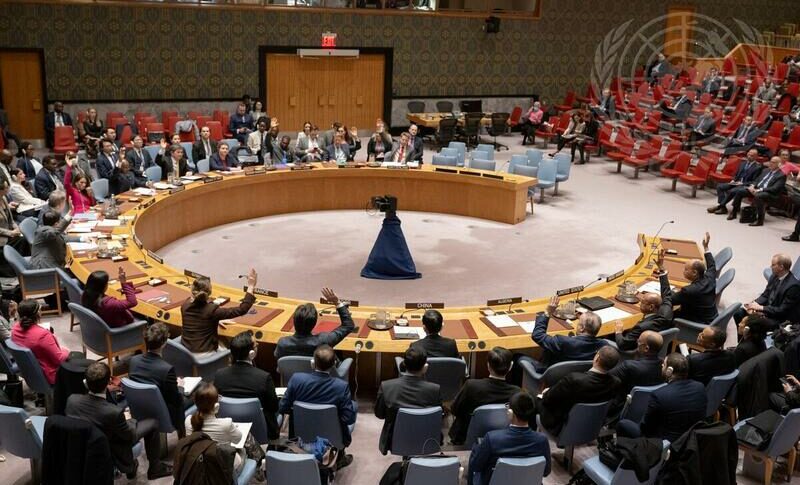Sudan faces famine as conflict drives millions to brink of starvation
January 6, 2025 (UNITED NATIONS) – United Nations officials issued a stark warning on Monday about the escalating humanitarian crisis in Sudan, where millions face starvation due to protracted conflict.
Edem Wosornu, director of the advocacy and operations division at the UN Office for the Coordination of Humanitarian Affairs (OCHA), called the situation a “man-made catastrophe of staggering proportions.”
The conflict has ravaged Sudan’s food production systems and critical infrastructure, leaving millions in imminent danger. “Famine conditions are now present in five areas,” Wosornu said, highlighting displacement camps and the western Nuba Mountains as particularly impacted.
The Food and Agriculture Organization (FAO) underscored the gravity of the crisis. “As we have learned from these extreme crises, tens of thousands of deaths have already occurred before any famine was classified,” Deputy Director-General Beth Bechdol said. The latest Integrated Food Security Phase Classification (IPC) analysis projects that famine could engulf five more regions by mid-2025, with 17 others at high risk.
Aid delivery hampered by logistical barriers and access restrictions
Despite ongoing relief efforts, delivering aid remains a major challenge. Logistical barriers, restricted access to conflict zones, and slow visa processing for humanitarian workers hinder operations. “Key areas in South Kordofan are effectively cut off from external assistance,” Wosornu said. New inspection protocols at a key border crossing have further delayed aid delivery.
The consequences are devastating: over 16% of households in affected areas experience catastrophic food insecurity, with nearly 90% of displaced families unable to afford food.
UN, FAO urge international support and unimpeded access
The UN and FAO called for urgent international support. They urged governments to prioritize funding for Sudan, ensure safe passage for relief efforts, and pressure warring parties to cease hostilities. “Immediate and unimpeded humanitarian access is essential,” Bechdol said.
The 2025 Sudan Humanitarian Needs and Response Plan requires $4.2 billion to support 21 million people within the country, with an additional $1.8 billion needed to assist refugees in neighbouring nations.
Long-term food security requires agricultural recovery
Beyond immediate relief, the FAO emphasized the need to address long-term food security by supporting agricultural recovery. “When farmers can access land and inputs, they will produce food,” Bechdol said.
The IPC analysis warns that Sudan is at a critical juncture. Without decisive action to stabilize food security, the situation will dramatically worsen. “Millions of lives are at risk,” Bechdol said, “and so is the stability of many nations in the region.”

